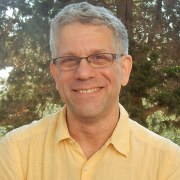Multi-country science engagement programmes
Public engagement with and understanding of science are central to improving standards of living everywhere and to building a better future for the planet. Science engagement players can play a crucial role in connecting global communities while still celebrating the world’s diversity on the local level.
In this session we will look at science engagement global programmes and how they have been able to successfully, and unsuccessfully, cross borders. Speakers from projects spanning Europe, the Americas, Africa, and Asia/Asia Pacific regions will each give a PechaKucha style presentation focusing on the opportunities and issues that hinder multi-country programmes. After these quick-fire presentations, the audience will dive into specific issues guided by participants' questions.
Facilitator
Association of Science-Technology Centers
Washington DC
United States
Session speakers
Sparks is an awareness-raising project to show Europeans that they can get involved in science and that various stakeholders share the responsibility for scientific research and innovation. Led by Ecsite - the European network of science centres and museums - Sparks is carried out over a three-year period (July 2015 to June 2018) by a network of partners including science shops and science centres/museums active across the whole European Union and Switzerland.
Director International Relations
World Biotech Tour is a 3-year initiative to bring biotechnology to life at 12 select science centres around the world. The WBT pursues three main objectives: (1) Increase the awareness of the public about the importance of biotechnology now and in the future; (2) Create new vocations for youth to embrace biotech studies and careers; (3) Help participating science centers to adapt their communication about biotech to make it current and adapted to their audiences.
‘Picture Happiness on Earth’ is an international workshop involving more than 1,400 youth of 12 to 18 years old from 10 countries from the Asia-Pacific region. They create short video works for the Geo-Cosmos , an exhibit of Miraikan, under the theme of ‘What is happiness on Earth?’ The main goals of the workshop are learning of the diversity of happiness values, considering happiness from personal level to a global scale, and addressing global issues’. By taking the workshop as a case study, this session will discuss and analyze the collaboration of science centres, and schools, each role and the final outcomes, as well as what can be done for the further development of STEAM education for the future, our youth.
Professor of Geographic Information Science
University College London
Doing It Together Science (DITOs) is a 3-year project, funded by the EU Horizon 2020 programme, that is aimed to increase awareness of and participation in citizen science across Europe and beyond. It is focused on communication, coordination, and support of citizen science activities. Therefore, the project promotes the sharing of best practices among existing networks for a greater public and policy engagement with citizen science through a wide range of events and activities.





